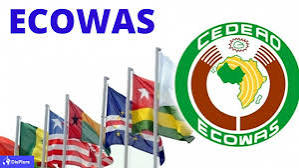NAVIGATING REGIONAL ECONOMIC DYNAMICS AMID LOOMING POLITICAL INSTABILITY AND SECURITY THREATS
By Raymond Enoch
In the heart of Africa, where economic aspirations often clash with political realities, the challenge of sustaining regional economic growth amid instability has never been more pressing. From the Sahel to the Central African region, businesses, investors, and policymakers are grappling with the twin threats of political uncertainty and security risks. The crucial question remains: how can economies thrive in such turbulent times?
This is the issue Paradigm News sets out to examine, shedding light on the dynamics at play and the way forward for economic sustainability in the face of adversity.

Africa’s economic landscape has historically demonstrated resilience, with regional trade agreements, infrastructural advancements, and digital transformation playing key roles in economic growth. However, this progress is now under threat from a wave of political instability—ranging from military coups and contested elections to violent extremism, often pursued with political connotations.
The Economic Community of West African States (ECOWAS) and the Central African Economic and Monetary Community (CEMAC) have long championed regional trade and economic integration. However, recent upheavals have tested their frameworks and exposed vulnerabilities in economic governance.

In West Africa, military takeovers in Mali, Burkina Faso, and Niger have led to diplomatic and economic isolation. Similarly, parts of Central Africa, including Chad and the Democratic Republic of Congo, continue to battle armed conflicts that disrupt trade and investment flows.
The immediate impact of political instability is capital flight. Investors, wary of unpredictable policies and security threats, either withdraw their funds or halt new investments. Foreign direct investment (FDI) inflows in conflict-prone regions have plummeted, leaving industries struggling to expand and economies teetering on the brink.
In Nigeria, Africa’s largest economy, insecurity in the northern region has disrupted agricultural supply chains, leading to rising food prices. Meanwhile, in Cameroon, the ongoing Anglophone crisis has hampered business operations, particularly in the Southwest region—a critical hub for agro-industrial exports.
Diplomatic tensions and security concerns have led to border closures, limiting the movement of goods and services. The recent blockade in the Sahel, following ECOWAS sanctions, resulted in fuel shortages and a surge in commodity prices in landlocked nations, including those in the Alliance of Sahel States (AES).
In response, regional economic bodies have been forced to reconsider their strategies. ECOWAS has taken a hardline stance against unconstitutional changes in government, imposing sanctions while negotiating transition timelines. Meanwhile, CEMAC has prioritized economic stability by strengthening financial regulations and reinforcing regional banking systems.
Some nations are turning to localized solutions to navigate these turbulent times. Ghana, for instance, has diversified its trade partnerships beyond the region, strengthening economic ties with Europe and Asia. In Chad, efforts to attract investors despite ongoing tensions have led to the introduction of tax incentives and business-friendly policies.
Despite the challenges, Africa’s private sector is demonstrating remarkable adaptability. Tech-driven solutions are emerging as powerful tools for businesses navigating instability. Fintech platforms in Nigeria and Kenya have revolutionized access to financial services, reducing dependency on volatile physical markets.
Additionally, digital supply chains are enabling trade in conflict-prone areas, minimizing risks associated with the physical movement of goods. The rise of e-commerce platforms has also provided alternative avenues for businesses to sustain operations in unstable environments.
Furthermore, the push for intra-African trade under the African Continental Free Trade Area (AfCFTA) presents a significant opportunity. By fostering regional production networks, businesses can reduce dependency on international supply chains and strengthen economic resilience.
As Africa stands at an economic crossroads, it must strike a balance between security and economic growth. Governments must prioritize political stability, strengthen regional trade frameworks, and implement policies that inspire investor confidence.
The international community also has a critical role to play. From supporting peacekeeping missions to fostering economic resilience through investments in critical sectors, global partners must collaborate to ensure sustained economic progress.
More importantly, African nations must harness their entrepreneurial spirit and innovative capacity to drive sustainable growth despite adversity.
The challenges are formidable, but Africa’s history of resilience suggests that, with the right policies, strategic partnerships, and a commitment to stability, regional economies can navigate these turbulent times and emerge stronger than before.







